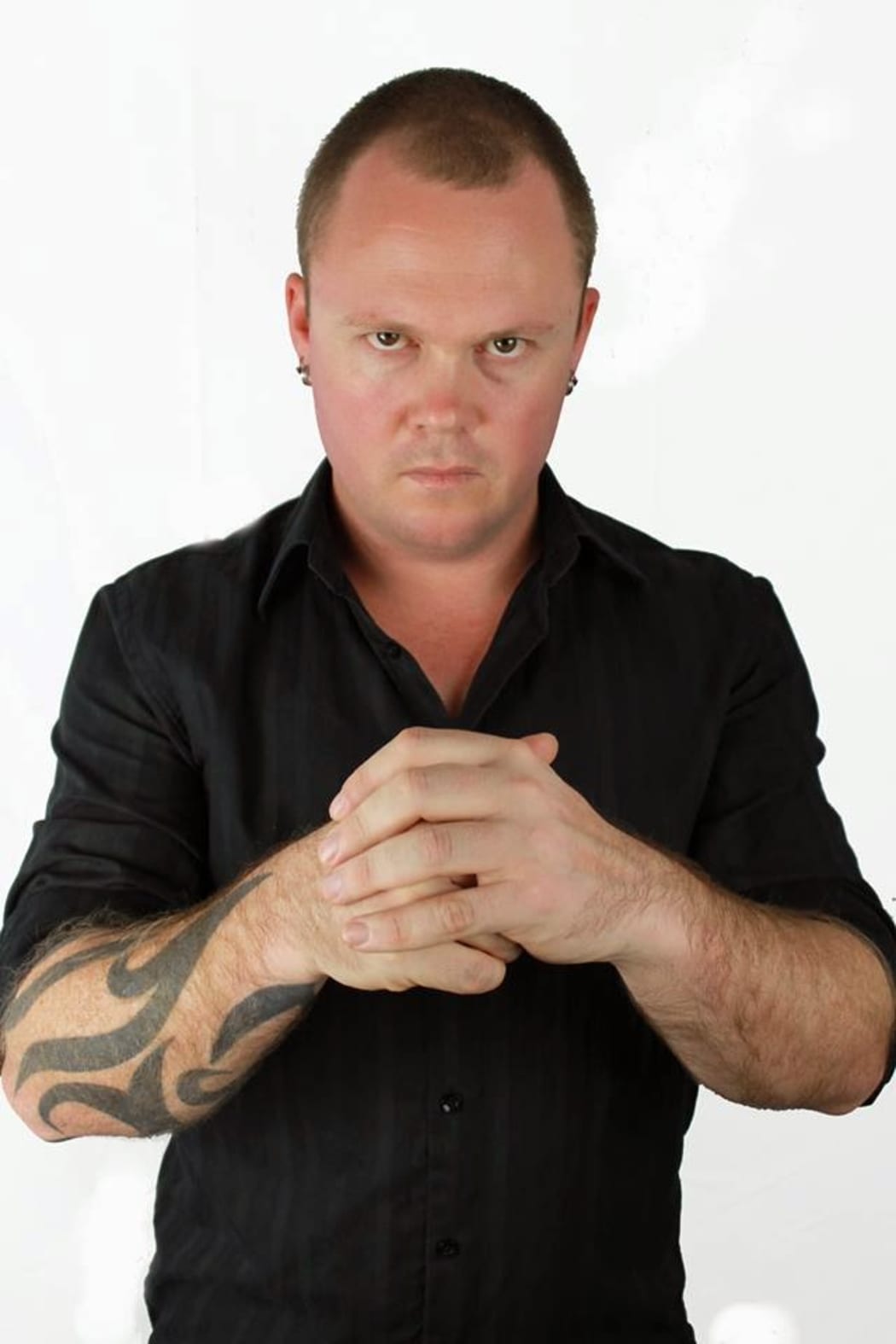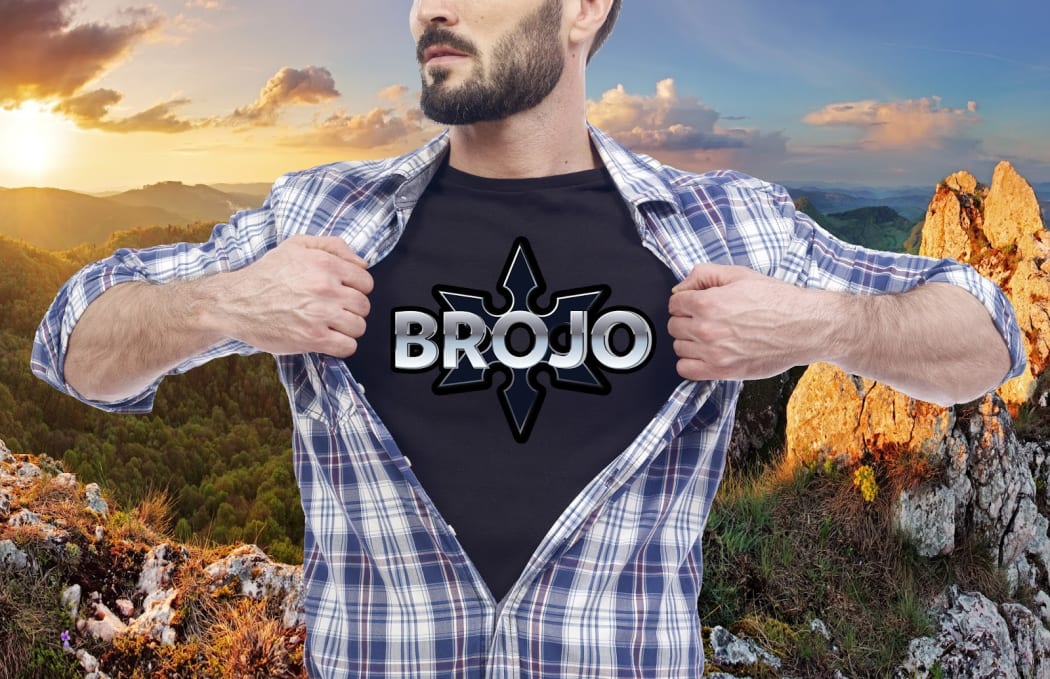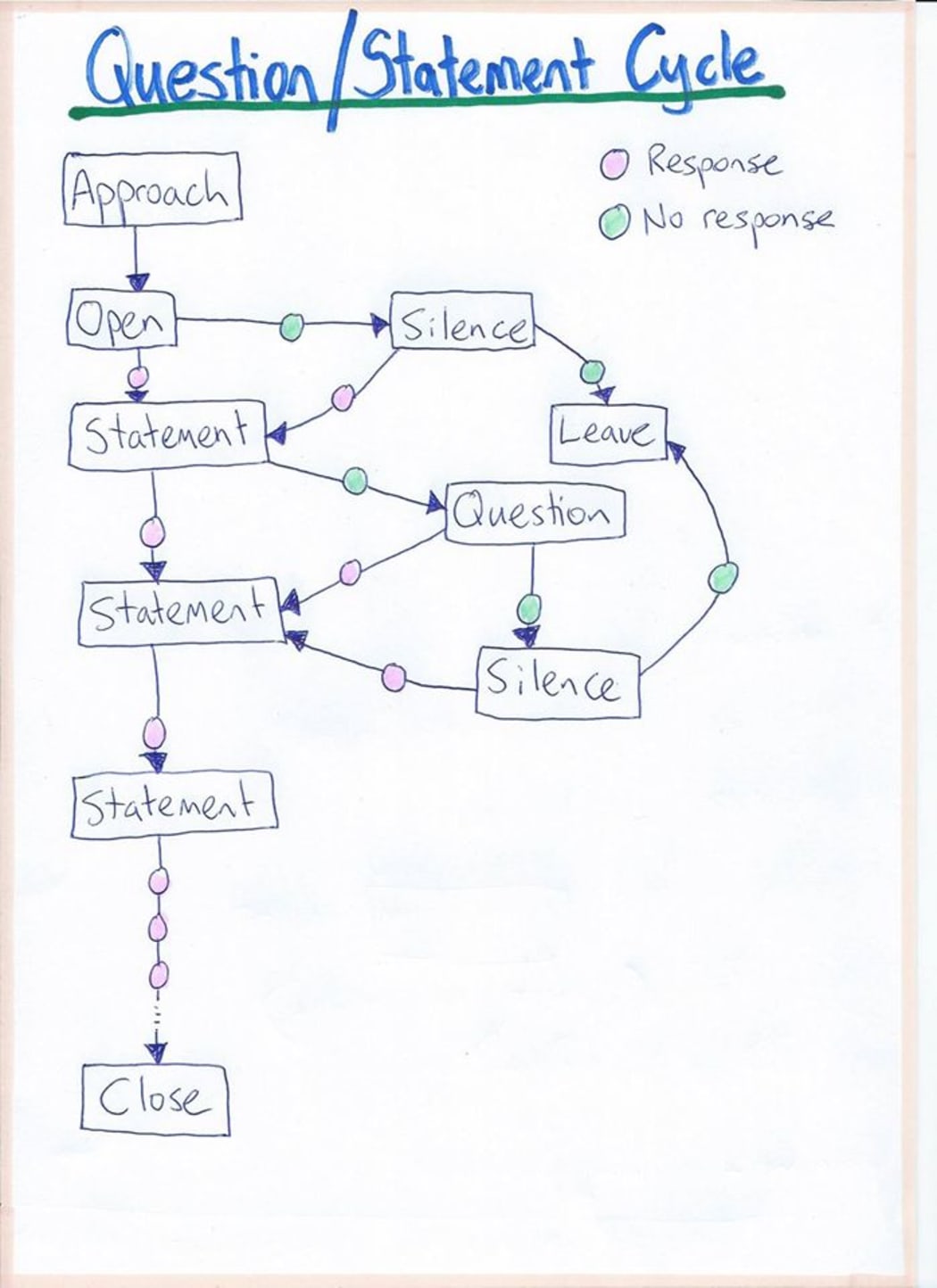It's hard out here for a bro. Rebecca Kamm meets the entrepreneur teaching Auckland guys how to be men.
Illustration: Lucy Zee
Old Dan was flawed, and new Dan spoke of him often.
"I didn’t have the balls to follow through,” he said, “but the fantasies? Of pain that I would inflict on people? Incredible.”
“I’ve got this one memory where I’m driving down the road near my house,” he recalled, “and like, smashing the steering wheel and yelling, and I had no idea why.”
On a Thursday evening in March, tucked away at the back of Galbraith's Alehouse in Mt Eden, Dan Munro - Confidence Coach and #1 Bestselling Author of ‘The Legendary Life’ was teaching 11 bros how to be men.
They had pens and paper. He had close-cropped hair, a hoop earring, and tribal tattoos that nailed him to the nineties. “I hope you guys survived without me,” he told them. “We’re talking about something tonight which is epic.”
Four times a week in pubs across Auckland, the 32-year-old preaches “authentic masculinity” to men who lack faith in themselves. Bros are his business: as paid members of his social group, Brojo, they gather for advice on ‘The Perfect First Date’, ‘The Power of Curiosity’, ‘Managing Manipulation’, ‘Antifragile – the art of resilience' and so much more.
Three minutes in and they were agog. Brazilian, German, Chilean, Chinese, Indian, New Zealand-Pakeha: a united nations of lost boys hoping to find their better selves in Dan’s words.
Every session formed part of the wider Brojo promise: “How to be a Man, with no apologies, no hesitation, no fear.” It was a safe space where "bros help each other to become stronger men".
Tonight’s topic was ‘Confident Mindset: Nice Guy Syndrome’. The blurb on meetup.com said most members of Brojo had it, even if they didn't know it.
They crammed around a long wooden table next to the toilet door, which screeched and squeaked. The writer sat off to the side and tried for invisibility.
“We’re gonna dive straight into it," Dan said. "Nice Guy syndrome. Who’s heard that term?”
“The relationship nice guy, every time follows the path of the woman?” a bro offered. “In Germany, we say… soft. No spine. He is a toy.”
“This is important,” Dan said. “It’s where a lot of the suffering comes from.”
Brazilian, German, Chilean, Chinese, Indian, New Zealand-Pakeha: a united nations of lost boys hoping to find their better selves in Dan’s words. For two hours they soaked up his wisdom and poured it into their notebooks. They hardly touched their beers.
The reason it’s got capital letters, Dan was saying, because it’s an identity: “I. Am. A. Nice. Guy.” The syndrome meant sacrifice, neediness, resentment, fear of abandonment; it was no wonder they wanted rid of it. The only silver lining, and even then it was only sometimes, was perfectionism. Dan said, “Overachieving is one of my specialties. It's got some upsides, but the downside is I don’t get to rest very often. Constantly on the go.”

Photo: Brojo
As for what the Nice Guy was trying to get out of life, it was “best described by saying what he’s trying to not get. And that’s rejected. Let me hear from you guys about resentment. What have you noticed?”
“The friend-zone phenomenon?”
“Friendzone!” Dan said through his burger. “Has anyone ever been there?”
No one volunteered.
“The friend zone represents… It begins with ‘C’. Covert contract. When you have a contract with someone but they don’t know about it. Like, ‘I’ve been nice to you, so you now owe me sex.’”
It’s the hallmark of the Nice Guy, they learned. He thinks the universe owes him.
“What are some examples of this?”
“I was going through depression and I thought that because I was living – alive and making an effort – people should be expressing gratitude,” offered a small bro squashed in between two others.
“Yup. Expecting appreciation. The real common one is gift giving – when you’re unable to give a gift anonymously.”
Rod, 38, a shaved-headed Brazilian and one of Dan’s right-hand-men, said he bought his ex-girlfriend a jewelry box once – “It has a kind of ballet dancer?” – but she opened it without him so he didn’t get to see her reaction. He was upset for a long time. “I start to hate the gift.”
Rod told a lot of stories that night. “Today,” he said, “I went up to K-Road, and I saw this Korean girl... 'Wow, let's talk to her.' She was look, like, familiar. ‘Yeah I think I know you. whatever...’ And I say, ‘Yeah, so. I think you’re hot.’
"I make questions to her, like: ‘You know what, in Brazil we have this kind of cough drug, and you do this during sex on your dick – it gives like, little bit of shock? Yeah, we can try this some time...'”
No one knew what that had to do with anything.
“Here's the thing, said Dan, finally. “This is you, and you're letting her see that. And if she doesn't like it then she can not like it, and she can move on.”
***
In 2014, Dan Munro looked around at the men’s groups on offer and decided they were overwhelmingly nurturing and therapeutic – “feminine-style”. He reckoned there was a gap in the market for male bonding "done in a masculine way”.
“We thought, men need something that will let them redefine what masculinity means. So many guys are exclusively raised in the feminine: we get a lot of fathers that are out of the home, and most school teachers are female. Guys are finding it easier to bond with women than with men.”
The antidote, he said, was a new set of values. "A direct, assertive, upfront approach. Moving forward, progressing.” The antidote was Dan.
Thirty-year-old Rickie, a German surveyer, was a goner. "Dan is so manly, that it take over you in a way," he said. "He is so honest, and when he speaks about all his ideas and stories, it kind of takes over you.”
Thom, a 35-year-old South African web developer, said “I was a bit sceptical, but I came anyway just to be open minded. I met a lot of guys who were really confident – they said they didn't used to be confident before [Brojo]. It’s made a big difference for me.”
Thom was handsome and funny, not that he knew it. He struggled with depression, anxiety and perfectionism. “My whole life I've been wandering around and comparing the blooper reel in my head to everyone else's highlight reel,” he said.
In which areas did he lack confidence?
“Everything. Women.”
Some of the bros had seen therapists, but many didn't care for it. “Brojo can measure more of your progress,” said Rod from Brazil, who came to make new friends and improve his social skills. “It don't have to be like, ‘Oh, when I was like four years old – blah blah blah blah blah.”
“Dan's not a shrink,” said Thom. “We see him as a personal coach.”
Membership to the Brojo “community”, as it is marketed, requires ongoing monthly deposits ranging from $77 to $497; Silver through to Platinum. Personal coaching with Dan is the apex: purchased individually, sessions cost $347 (with bulk-buy available for slightly less).
Then there are the video master classes, the six-week '101-Level’ courses, and the two-day 'Social Mastery' bootcamps, which range in price from $997 to $5,997. At its upper end, the bootcamp includes 20 personal coaching sessions, Brojo instructor training, and “priority consideration for a Captain role”, like Rodrigo had.
As a Captain, you could attend Brojo events for free in exchange for helping out, and perhaps one day even become a coach yourself. (Dan is a ‘Lieutenant’, but will soon change his title to ‘Boss’. The brojo roles are named after mafia positions.)
Money was clearly a preoccupation. Last December, Dan wrote a blog post about earning $10k in one month alone, “which I had no hesitation sharing and bragging about.”
But things went pear-shaped: he got complacent, ended up broke, took a part-time job, and felt like a total failure. “I got mad at myself for not accepting myself,” he divulged in the epic screed. “My perfectionism leads me to think I’m supposed to be The Man all the time. I was getting into a psychological mess.”
It ended on an high note though. It had to. “I can share my insecurities to inspire and educate the next generation of Confident Beasts," he said. "Bring it!”

Photo: Brojo
Dan Munro from Massey is Auckland born-and-bred. He got a BA in psychology from AUT, then he worked in corrections, mainly as a probation officer. He has also taken courses “designed by top psychologists around the world” and had coaching himself, from a merry-go-round of gurus.
But he said what really matters is his life experience, by which he meant his metamorphosis.
“Night after night I [would] lie awake wondering why I couldn’t just be honest and real with people,” he said of the dark days before he kicked Nice Guy syndrome. “My connections with people were mostly superficial, because the guy they thought they liked didn’t actually exist.”
Then, age 25, he came across a book called No More Mr Nice Guy, by psychologist Richard Glover, and it changed his life. “Every page I read,” he told the bros, “I had to put the book down and just be like, ‘Faaark, my whole life’s a lie.’”
He began his journey into authenticity by approaching women, “the most terrifying creatures on the planet”. The goal was to desensitise himself to rejection. After he'd conquered that, he studied the most successful business people, artists and leaders to learn their secrets.
Through doing all this, he writes, “I started to learn the key influences in social dynamics, how to be a leader, and how to build social circles up from scratch.”
#1 Bestselling Author of ‘The Legendary Life. Dan’s book (“a guide to self-development, personal growth and achieving victory in your life”) was published by his good friend Jesse Krieger: a floppy-haired motivational coach from San Francisco, and the owner of Lifestyle Entrepreneurs Press.
Krieger's company helps small-time motivational entrepreneurs put their ethos onto the e-page, as a springboard from which to legitimise and build their brand. He calls it the ‘Author to Entrepreneur Service’: the aim is to get a client’s book to the top of an Amazon category for a time, technically granting it #1 Bestseller status, and from there “establish you as a credible authority and leader in your field”.
Rhapsodic websites, rock music and lifestyle sports: they are the defining aesthetic of motivational coaches. Dan Munro, when he’s not teaching or coaching, plays bass in a rock band, loves hitting the gym, and dances salsa and zouk. “Former touring rock guitarist” Krieger, when he's not shooting clients' e-books up Amazon’s self-help charts, can be found pedaling up a steep mountain slope, or “yelling at the top of his lungs from the peak.”
***
Dan has an “amazing Czech girlfriend”, and it is the most intimate and real connection he has ever experienced with another human.
Everyone else at Brojo was single, except for a married bro called Brian who wasn't there that night.
I asked, does Brojo incorporate Pick Up Artistry (PUA)?
Dan said, “Quite often the titles of the Brojo sessions are deliberately ironic. Like, ‘Social Mastery –Escalating Sexual Tension’ sounds like, ‘This is how you make her want you.’”
It does sound like that, I said.
“Of course it does, ha ha! But all that happens when you come to that session is, I talk about being honest about your sexual intentions.”
Had he passed through that grimy land, though?
“Oooh yeah.”

The Social Skills Mastery conversation map. Photo: Brojo FB
He approached, negged and closed for three years before he realised the PUA life was turning him into a “master manipulator.”
It all came to a head one night, Dan said, when he went home with a woman he’d met at a bar. His tactics had worked and she was willing, but just as they were poised to consummate his subterfuge, “I stopped and had this kind of meltdown. I realised, she has no idea who I am. This isn’t actually consensual because she hasn't met me yet. It was quite a hard moment for me.”
“So,” he concluded, “if anything, we're not just not pick up, we’re working against it.”
But you didn’t have to look far: Just last year, Dan posted a “great” article written by Badboy, the self-described ‘number 1 Pickup Coach in the World (2014 and 2015)’.
Titled ‘15 Principles and Rules of dating’, the piece discussed, among other things, the ‘PPF’ – or ‘Price Per Fuck’. (Never spend more than US$50 on a woman, apparently, or you’ll “pump up her value”.)
Meantime, Brojo co-founder Mike Wells could be found writing about how to collect attractive women as props. “There is probably good value in developing entirely platonic female friendships with hot women, and going out with them often,” he suggested. “And I'd say the more the better. If you end up on a night out with 5 hot female friends, you're probably the hottest guy in the city at that moment.”
His ideas were based on the PUA concept of ‘Social Proof’” increasing your perceived value in the eyes of women. Mike had even formulated a woeful scale that went from one (“You are by yourself”) to ten (“You are very close friends with an attractive female friend of hers; bonus points if that friend is interested in you”).
None of that felt like authentic masculinity. Neither did Dan’s article ‘Why Your Boyfriend Doesn’t Initiate Sex’, which he said picked up half of all his web traffic. “Think of any guy who’s ever been nice to you without you having to earn it," he wrote. "He was trying to get laid. End of story. No exceptions."
“My sister’s boyfriend’s father?” a reader shot back, “My high school science teacher? My boss? They all just wanted to f*ck me, huh? I’ll be sure to never again waste my time reading an article you’ve written.”
Dan: “I don’t think you want to know what your boyfriend’s father, high school teacher and boss really have thoughts about. I’ve heard what guys like this talk about when women aren’t around. The truth would bother you deeply.”
I hoped the bros had minds of their own, because Dan seemed honest but he also seem to have remnants of his old life stuck to his new one. There was hope, though: the evening before, a bunch of them had gotten together socially to discuss a book a bro had read. “It’s called Game Over. It's about why PUA is stupid,” said Thom.
“Yeah,” said Nick, 32. “Brojo's about being authentic, but it's got nothing to do with girls. For me, it was about not having certain social skills. For some reason I never developed them.”
“It's like Dan says, it's a gift. I think it will attract, you know? Yeah, I like how you look. I like your lips. I like your face, whatever. You just give,” said Captain Rod.
***
The squeaky door, the notepads, the untouched beers... That Thursday night at the back of Galbraith's didn’t feel like authentic masculinity or feminine-style or PUA or anti-PUA. It felt like 11 young men subscribing to a service that alleviated loneliness and soothed their fears and gave them hope. Which was soft and nurturing whichever way you looked at it.
“Some nice guys can keep up the Nice Guy act for a long time, but no one can do it forever,” Dan was telling them. “The maximum I've seen is seven years. That's a fucken heroic effort, my god. But [his girlfriend] knew something was wrong. Girls aren't stupid.”
He talked a lot about the Nice Guy ‘spectrum’. What’s on other end of the spectrum, asked a bro. Sociopaths, said Dan. “I've worked with a serial killer before and he was a cold-blooded psychopath, feels nothing for people. A person is as significant as a glass. I asked him, ‘What's love?’ And he said, ‘Love is having your gun in someone’s mouth.’ And I was like, ‘What do you mean?’ and he was like, ‘When you’ve got your gun in someone's mouth, you’re the only person they’re thinking of. That’s love.’”
Ordinary mammals, he said, including Nice Guys and even crocodiles, want real love. That’s why they fear abandonment. "Human babies in particular. Because of our big heads, we're born a lot earlier than other mammals. We're born with almost no functioning at all. Like, a horse is walking on its first day. Humans don't walk for months, right? So, we really will die if we're abandoned.”
Rod had a story about abandonment. He said, “At the end of the year it was the last day of school so I went to him like ‘Hey man, have a good holidays,’ and he just says fuck you and wow, ‘What's going on, I just was your friend.’ So he was just playing nice with me to just not get expelled and that’s it. So I was like ‘Yeah, I got a friend.”
At the end, Dan gave them some practical advice: keep a journal and write in it every day. Track your own behaviour in it, and give yourself honest feedback. Then he said, which was nice: “One of the hugest things is just letting people see that you're a normal human being.”
They'd gone half-an-hour over.
“Alrighty guys," Dan said, wrapping up. "That's it from me. Some of this stuff might hurt a little bit, but I’m OK with you being hurt by it. Because if this is you, then you’re suffering. Every day suffering. And there’s another way to live, where you don’t have to be a dick. Sweet.”

